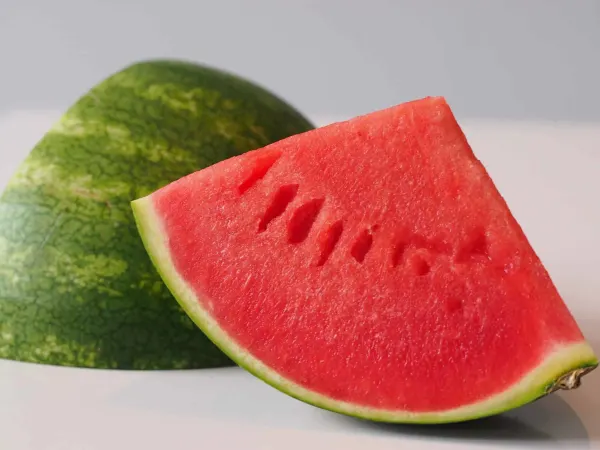
Watermelon is considered a “superfood” because it provides a lot of nutritional benefits while having minimum calories packed full of minerals, antioxidants, and vitamins. It is a highly cultivated fruit having more than 1000 varieties worldwide
Helps Digestion
Since Watermelon is mostly water and contains a small amount of fiber, both are necessary for healthy digestion. Fiber helps keep bowels regular, while water moves waste through your digestive tract.
Bones and Joint
Watermelon contains a natural pigment beta-cryptoxanthin, which helps protect joints from inflammation. Research indicates that less inflammation protects developing conditions of rheumatoid arthritis or osteoporosis.
Improve heart health
The risk of heart attack and stroke can be lowered by reducing your blood pressure and cholesterol levels. Lycopene present in watermelon helps lower cholesterol and blood pressure both play key roles in cardiovascular health.
Keeps Hydrated
Mostly adults don’t drink enough water, and hydration is important in the summertime, More than 90% of the water composition in watermelon keeps you hydrated.
Helps Weight loss
Watermelon helps you feel full longer. Eating watermelon daily overweight decreases body weight, blood pressure, and waist circumference.
Boosts Immunity
Zinc is an important nutrient for the immune system and watermelon is also a source of it. Zinc also plays an important role in testosterone production.
Reproductive health
Watermelon is a natural source of L-citrulline, which is an amino acid that plays a role in sexual health, improves blood flow and circulation, and relieves stress offering possible benefits including workout enhancement and overall health.
Since watermelon is 90% composed of water and can help hydrate your body, you can eat this fruit before bed.



Post a comment